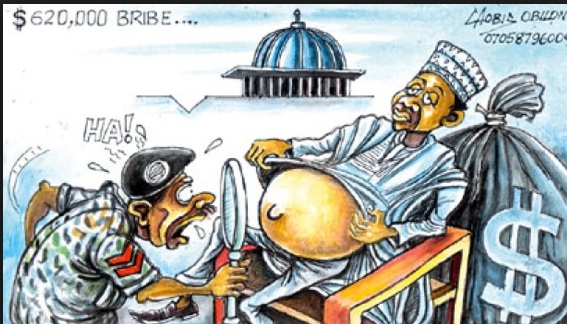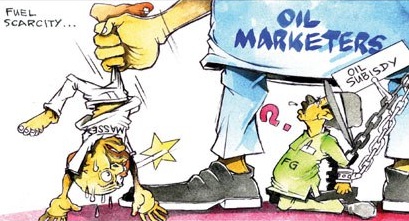Nigeria has asked the World Bank and African Development Bank for a $3.5 billion loan.
The request comes as Africa’s largest economy grapples with a $15 billion budget deficit in the wake of the oil crash that has seen prices fall about 70% in the last year and a half.
Nigeria’s finance minister, Kemi Adeosun said these loans aren’t an “emergency” measure, but merely the cheapest way for the country to shore up its finances.
Nigeria produces about 1.8 million barrels of oil per day and 35% of its GDP comes from the oil and gas sector; 90% of Nigeria’s export revenue comes from the sale of petroleum.
The important takeaway, however, is that while the crash in oil prices seen during 2014 and 2015 was stunning, it isn’t until this year and beyond that we’ll start to see the real impacts on both private corporate and government budgets from the sustained decline in prices.
Nigeria’s package might be composed of $2.5 billion from the World Bank and $1 billion from the African Development Bank. The loans would likely be priced at below-market rates.
There is a rising risk of violence inside the country disrupting its oil production, a development that could boost international prices but would certainly further stress Nigeria’s financial position.
The proposed package of loans made to Nigeria wouldn’t come with the strings usually attached with a loan from the IMF — which often include extensive “structural reforms,” which is basically short-hand for coming up with additional revenue to ensure repayment — the IMF will be expected to endorse a loan from the World Bank.


